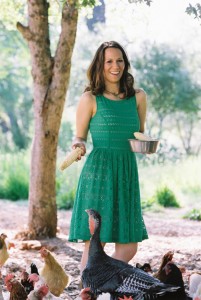 I first (sort of) met Kayle Martin from Cowgirls and Collard Greens at an the New York City Vegan Mainstream Marketing Bootcamp last August. By chance or because of fate, she won a cookbook giveaway I was running a few months ago, and we began chatting via email. Her story is so inspiring, that I just knew it had to be shared with Chic Vegan readers. Kayle is a two-time cancer surviver, and she beat the disease with a vegan diet, a “yeehaw” attitude and a pair cancer-kicking cowgirl boots.
I first (sort of) met Kayle Martin from Cowgirls and Collard Greens at an the New York City Vegan Mainstream Marketing Bootcamp last August. By chance or because of fate, she won a cookbook giveaway I was running a few months ago, and we began chatting via email. Her story is so inspiring, that I just knew it had to be shared with Chic Vegan readers. Kayle is a two-time cancer surviver, and she beat the disease with a vegan diet, a “yeehaw” attitude and a pair cancer-kicking cowgirl boots.
Chic Vegan – You went vegetarian at an early age. Can you tell us a little about what motived you to change your diet?
Kayle Martin – Yes, I became vegetarian in Junior High school shortly after my cow, Cupcake, ended up on my dinner plate one evening. I remained a vegetarian from that then on (close to twenty years) until I became vegan in 2008.
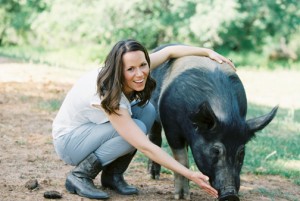 CV – You were diagnosed with cancer when you were 30. I can’t image what that is like. How did you handle it?
CV – You were diagnosed with cancer when you were 30. I can’t image what that is like. How did you handle it?
KM – At first I was in a state of complete shock when I got the news. I went through all the stages and levels of grief and finally came to the place of gratitude. I never believed that the diagnosis was something permanent or something that belonged to me. Rather I viewed it as just a visitor and a teacher which it was.
CV – I know that you went vegan after your diagnosis. What made you decide to change your diet?
KM – I immediately became vegan after watching a myriad of alternative cancer-related films including Kris Carr’s inspirational documentary, Crazy Sexy Cancer. Like her, it made perfect sense to me that diet could affect one’s well-being. I took the “go back to nature” approach by going vegan, mostly raw, to alkalize and cleanse my entire body.
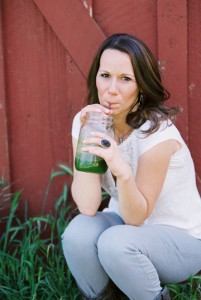 CV – Did you go through traditional cancer treatment methods or did you opt for a more natural approach to healing?
CV – Did you go through traditional cancer treatment methods or did you opt for a more natural approach to healing?
KM – I did both. Within a couple months of my breast cancer diagnosis I enrolled in raw food school, The Living Foods Institute in Atlanta, Georgia. I learned about the raw food lifestyle and immersed myself in all things raw and vegan. I decided to take a more natural approach to healing as well as the traditional methods. I ate a 100% raw vegan diet, and worked with a team of wellness activists including a Naturopathic doctor, a colon hydrotherapist, a chiropractor, an acupuncturist, a massage therapist as well as a traditional oncologist.
I did undergo allopathic cancer treatments including four rounds of chemotherapy, six weeks of radiation and five surgeries, I am proud to say that I was never ill. I feel that I owe it all to filling my body with nothing but healthy plant sources, mostly greens, not to mention my cowgirl “yeehaw” attitude and my cancer-kicking cowgirl boots.
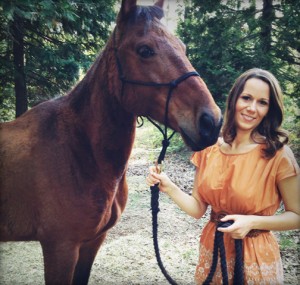 CV –What types of food did you eat during your treatment?
CV –What types of food did you eat during your treatment?
KM – I became quite the green vegetable queen. Primarily I juiced greens 1-3 times per day. Like I mentioned earlier, I ate a 100% raw food plant-based diet that mostly consisted of greens. I ate a lot of salads, and also found myself getting creative in the kitchen chopping, blending, dehydrating and using my food processor. I cut out almost all sugar and ate very little fruit because cancer cells feed on sugar. I felt I was fighting for my life and I wanted to create the best possible outcome and state of wellness. I learned to treat my body as temple.
CV – What is your diet like these days?
KM – While I am no longer on a 100% raw food diet, I still eat completely vegan. My favorite foods to eat are still greens and I prefer them over other plant-based foods. I do love sugar so I have to watch my intake, but enjoy things like vegan wine and desserts occasionally (who doesn’t love a vegan cupcake?).
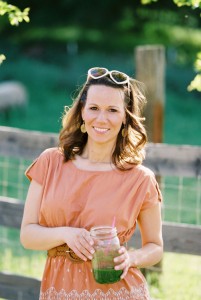 CV – When people learn that you are vegan, what is the #1 question they ask and what is your response?
CV – When people learn that you are vegan, what is the #1 question they ask and what is your response?
KM – Like almost all vegans, I probably get asked the “where do you get your protein from” question more than any other. Most often I respond by saying that we eat too much protein in this country. I talk about the protein myth and explain that protein can be found in many foods including greens. Giving the example of one pound of kale having more protein than a steak usually shocks people and gets the facts across. I feel that living a vegan lifestyle is a way of educating those who may not know about the health benefits of plant-based living. In other words, I do my best to live by example rather than preaching veganism.
CV – What advice would you give to someone who just found out that she has cancer?
KM – I’d suggest watching some of the films and reading some of the books I immersed myself in after my diagnosis: Forks over Knives, The Beautiful Truth, Fat, Sick and Nearly Dead and Crazy Sexy Cancer to name just a few. Often just viewing some of these documentaries has an impact on how people view their own health. While I promote a vegan diet because of the huge impact and health benefits I have personally experienced (I am cancer-free!), I realize that my job is to be a guide and a resource. Making decisions around one’s health are completely personal choices and I feel my job is to support everyone no matter where they are in their process.
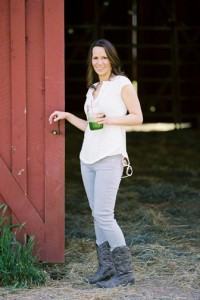 CV – Do you have any tips for people who want to eat a healthy diet but feel that it’s too difficult to stick to?
CV – Do you have any tips for people who want to eat a healthy diet but feel that it’s too difficult to stick to?
KM – I feel that once you make the decision to go vegan things get a lot easier. I went vegan overnight due to an illness, but for some it may be a more gradual change. There are many “transitional” vegan foods such as vegan meats and cheeses that can help those who might struggle with missing some of their favorite foods. Creating your favorite recipes by veganizing them might be a fun challenge for some. I’d highly suggest checking out Dan & Annie Shannon’s book Betty Goes Vegan which is a veganized version of the famous Betty Crocker Cookbook.
CV – In your wildest dreams what will your life look like in 5 years?
KM – My hope is to travel the world sharing my cancer experience to inspire others to live happier, healthier lives. I’d love to continue to speak on behalf of all animals and their well being, and be a living example of gaining wellness through a plant-based diet. In my wildest dreams, I would write a book on my vegan journey, be married to a vegan man, while living on a horse ranch in my favorite Tuscan hill town. Dream big or go home, right?
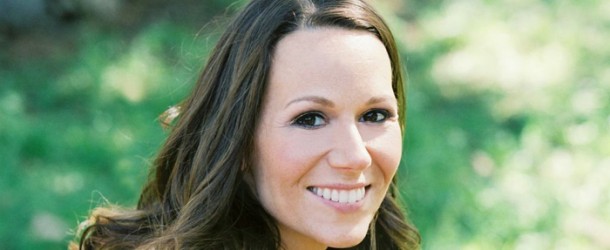
[…] Click Here to read the interview […]